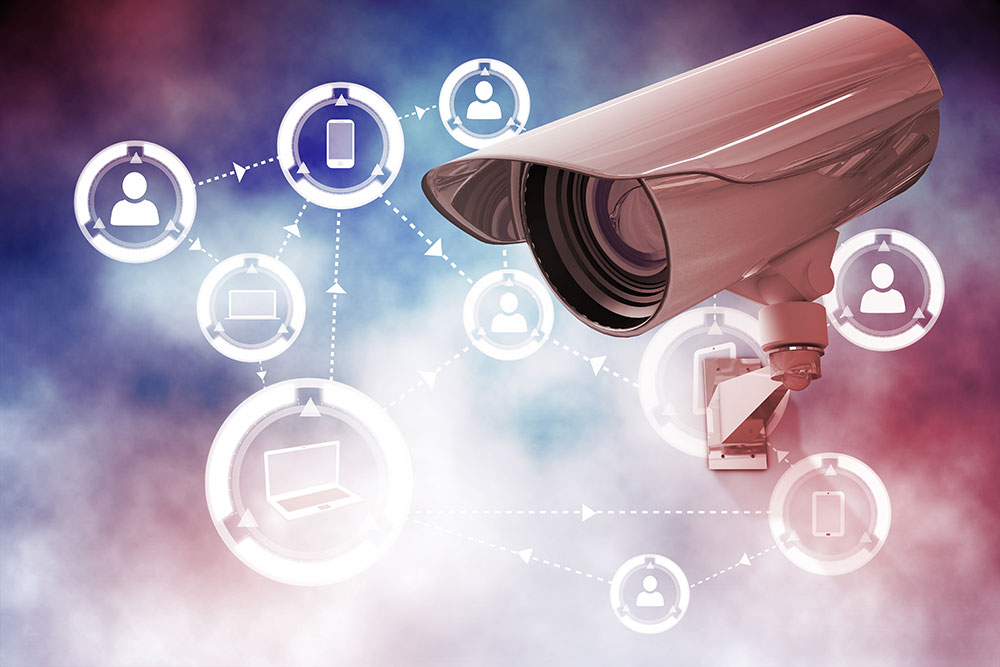Given social media’s significant presence in our everyday lives, it is not surprising that disability insurers aim to keep tabs on their disability benefit claimants and recipients. In fact, your receipt of disability benefits can be directly and negatively impacted by your social media posts. That being said, it is important to be mindful of the image you portray of yourself on your social media accounts.
Table of Contents
Modern Surveillance Takes Place Online
Let’s face it – disability insurers will jump at the first chance they can to deny or terminate an individual’s long-term disability claim. In the past, insurers frequently conducted in-person surveillance of a claimant, be it through covert videotaping or a field interview with a claimant.
The goal of that surveillance was to discover evidence that the claimant is engaged in activity that is inconsistent with their reported disability. In recent years, however, insurers have shifted their focus to electronic surveillance of claimants’ social media accounts, including Facebook, Instagram, Twitter, and LinkedIn. Insurers will either directly monitor a claimant’s social media accounts or they will hire a third-party investigator to do so.
What Are Investigators Looking for Online?
Investigators are searching for any sort of evidence that could be deemed inconsistent with a claimant’s alleged disabling medical or psychiatric impairments. That evidence typically takes the form of pictures or videos of the claimant engaged in physical activity or traveling. That physical activity can be something as simple as taking a walk, walking a dog, or attending social events.
Disability insurers will use those photos and/or videos as proof that the claimant is physically or mentally capable of working and therefore is not entitled to disability benefits. Investigators will also be on the lookout for evidence that the claimant is either working or looking for work in any capacity, even if that work is minimal. Investigators will view not only the claimant’s social media accounts, but they may also view the accounts of the claimant’s family members and close friends in search of any evidence that could be used as grounds to deny or terminate the claimant’s disability benefits.
Issues Surrounding Online Surveillance
While it would arguably be reasonable for an insurer to terminate the claim of an individual with an allegedly disabling leg impairment who posted a video of himself running a marathon, online surveillance is never that clear cut. Indeed, there are a number of problems presented by a disability insurer’s reliance upon social media posts to deny or terminate a claimant’s benefits.
For starters, social media posts only portray a snapshot of the claimant’s life; and they are often one-sided and can easily be taken out of context. Disabling medical or psychiatric impairments can also vary day-to-day, with both good and bad days. If an investigator happens to come across a photo or video taken on a ‘good day’ where the claimant’s disabling condition has eased up, then the insurer will falsely assume that the claimant exhibits that level of functionality on a daily basis. In similar fashion, reliance on social media posts to deny or terminate a disability claim also unreasonably equates occasional recreational activity to being able to work on a full-time basis.
An insurer’s reliance on online surveillance is additionally problematic given the nature of social media itself – everyone portrays their best self on social media, and it is unlikely anyone is broadcasting the extent of their disabling health concerns for everyone to see. Likewise, another shortcoming of online surveillance is that it cannot adequately address ‘invisible’ disabilities, such as chronic pain, chronic fatigue, depression, and anxiety.
What You Can Do to Protect Your Disability Benefits
While it may be difficult to give up social media altogether, that course of action is the best way to ensure that your disability claim is not denied or terminated due to a misunderstanding or misinterpretation surrounding a social media post. However, short of completely deleting your various accounts, there are multiple steps that you can take to protect yourself from falling victim to an insurer’s social media surveillance.
Generally speaking, you should be proactive and smart with what you choose to share via your social media accounts – it is best to err on the side of caution and be selective regarding what you post. Similarly, you should be mindful of what your family members and close friends post with you – they should limit or refrain from “tagging” you in photos, videos, or posts on their account.
It is also important to use the highest level of privacy settings available on your social media accounts. That way, only your family and friends can see your complete profile.
Although everyone portrays their best self on social media, individuals applying for or receiving disability benefits should fight the temptation to paint a rosier picture of their lives on social media than is born out in reality. You should also delete or update any inactive social media accounts to ensure that they are not relied upon as evidence that you are currently able to return to work.
Finally, don’t accept friend requests or connect with anyone you do not know – while it is unlikely that an insurer or third-party investigator would create a fake account to surveil your social media accounts, it is not outside the realm of possibility.
If you feel that your disability claim was denied or terminated due to your presence on social media, you should contact a disability lawyer who can ensure that your benefits are not jeopardized by social media posts.







